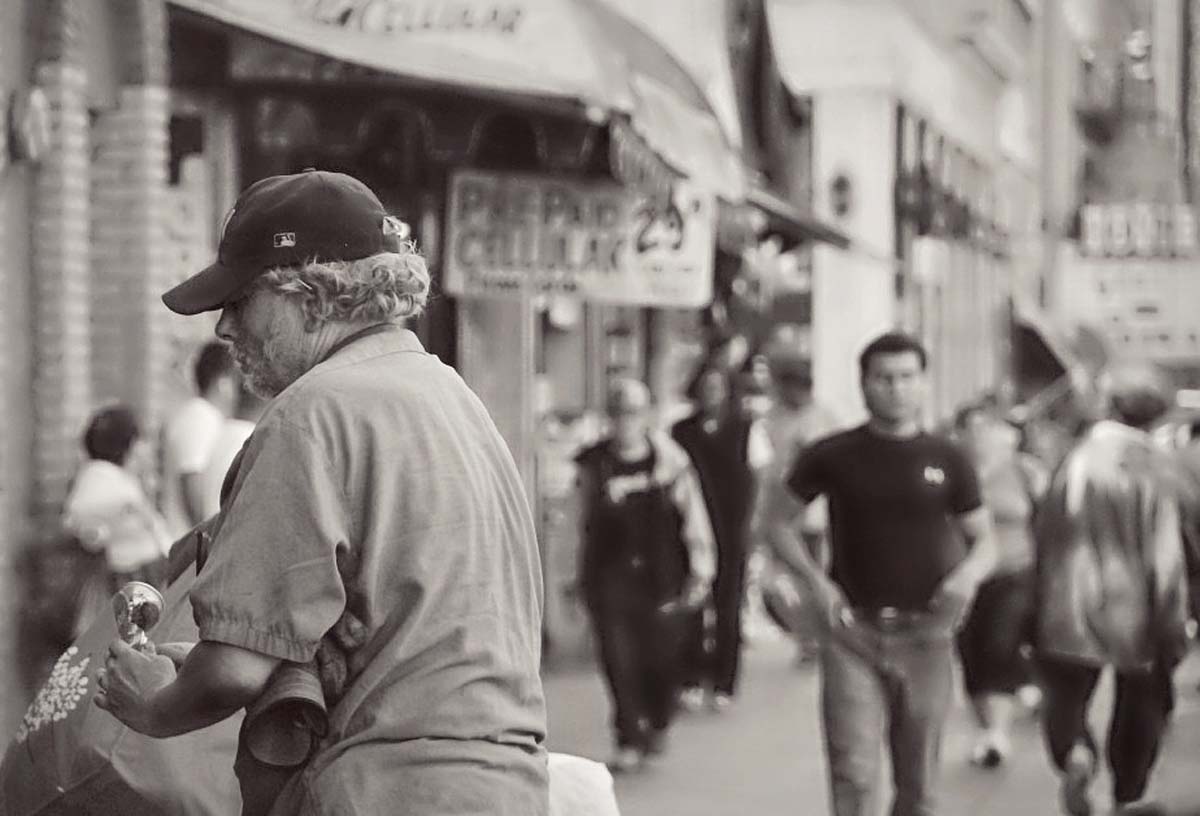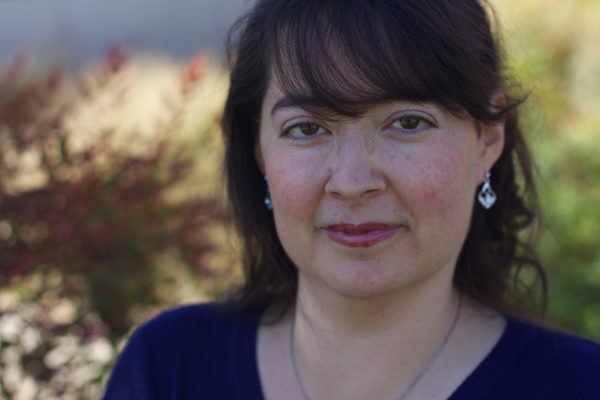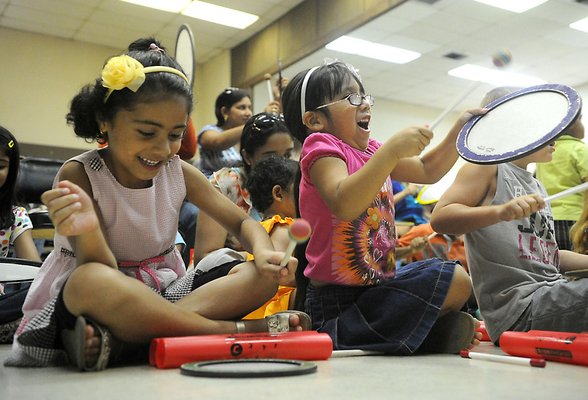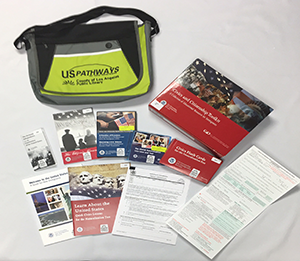Fruits of Labor

The flat-bed truck rumbled along the back roads of Ventura County, California. Don Luis crouched in a corner. His buddies’ elbows poked his ribs. It had been a long day, climbing ladders, filling sacks, emptying lemons into crates on the way down. But it beat picking beets in Nebraska. He’d returned home penniless after that stint, despite pleas to officials at the border bracero office to recoup his wages. At the cooperativa store in his Mexican village, he’d awaited a check in the mail that never came. Now, a year later, the memory of that fruitless trip to the Great Plains still stung like thorns tearing his skin as he picked lemons. But he’d get his pay, he thought, as he leaned against the truck’s side panel, while the engine hummed and he fell asleep.
Then a siren shook him from his slumber. Braceros scrambled, flailing their arms in the dark, canvas sacks still slung across their shoulders.
Don Luis sat upright. In the distance, the red lights atop a patrol car blinded him. Brakes screeched as the truck skidded off the road. A few feet away, a door slammed and footsteps crunched on gravel.
An object gleamed in the dark as a man approached the truck.
“All of you, get down,” he said, a badge affixed to his uniform. The foreman slammed the driver’s door and instructed the men, in Spanish, to climb out, then followed his crew.
Don Luis and the men flung canvas sacks off their backs and jumped out of the flatbed truck.
“Single file,” the police officer said.
Don Luis lined up, just as he did at the border bracero processing center where ranchers’ representatives gathered to select workers. He knew the routine. No shiny belt buckles, smooth hands, or back talk.
His neck stiffened and hands fidgeted. Was someone in trouble? As far as he knew, everyone had bracero papers. Or did they? In recent years, contracts had been harder to get.
The officer scanned the men’s arms.
“I need you,” he began, pointing to each of them. “There’s a fire raging over there.” He pointed to the hills.
Don Luis and the men broke away from the line. Fire trucks screeched as crews disembarked, hauling hoses, protective gear, and equipment.
Don Luis followed them into the desolate hillside. His feet and legs dragged, heavy from the day’s climbing. Drops of sweat ran down his forehead.
After nearly two hours, his legs began to buckle as he reached the hilltop. He looked up and saw firemen frantically extinguishing flames. Don Luis and his buddies hauled buckets, equipment, and hoses to them through the night.
As the sun peeked above the Ventura skyline, a sweet aroma cut through the haze. Workers set up a table, spreading it with bread and coffee. They sat there – braceros and firefighters together – atop the hillside, amid the embers. Don Luis poured a cup of coffee and bit into the bread. It filled his empty stomach.
Then he and his buddies followed the foreman for the downhill trek and drive back to the bracero camp, where lemons and oranges waited to be picked.
* *
About that time, the postman at the village cooperativa store announced: “A letter for Don Luis.” Antonia grasped the envelope addressed to her husband, then handed it to her father to read.
“From Nebraska,” he said, opening the envelope. A check spilled out.
It came just in time. Food was scarce at home. They went to town to cash it.
In town, the teller studied the check.
“And where is Don Luis?” he asked.
“In El Norte,” Antonia replied.
The teller shook his head, returning the check. “He must sign.”
Antonia and her father headed back to their village. She dictated a letter to her sister and inserted the check in an envelope addressed to Luis in California.
It would arrive in two weeks.
* *
Don Luis removed his canvas sack and followed his buddies back to the Oxnard bracero camp. At the entrance to the barracks, the mail carrier waved letters in the air. Braceros gathered around him, arms outstretched. Don Luis listened for his name.
When it came, he grabbed the envelope — a letter from home! – and unsealed it: a check for $100 from Nebraska. It was less than he’d expected. But it would put food on the table back home. He pocketed it and cleaned up for dinner at the mess hall. At night, he guarded it near his cot.
On Sunday, he presented the check to his foreman.
“It’s good,” the foreman said in Spanish, examining it. So Don Luis donned his best pants, straightened his shirt collar, and headed into the colonia, where – unlike in Nebraska and Utah – store clerks greeted him in Spanish.
He walked into a store displaying women’s and men’s clothes. He picked out a shirt and pants, then reached for the check inside his pocket.
“Please cash it,” he told the clerk.
“Sure,” the clerk replied. Don Luis signed, and walked out with his purchases.
The following day, he was back to climbing ladders and picking lemons. At sunset, he and the men mounted ladders back onto trucks, and stacked crates. On the way back to camp, he thought of the letter he’d write home.
But at the barracks’ entrance, he stopped. A badge sparkled on a man’s dark uniform.
“Hey, you,” he barked, in Spanish.
Don Luis’ neck stiffened. Was there a fire to put out? Or was someone in trouble? The police officer stared him down.
“Were you at a store? What did you get?”
Don Luis stood erect. But his hands fidgeted.
“A pair of pants and shirt,” he replied.
“You need to go back. And be sure to take the money and pick up your check. It’s no good.”
Don Luis washed. He grabbed the unworn pants and shirt and stuffed his pockets with change left over from his last paycheck. He headed into town.
At the store, he laid the clothes on the counter and paid for them with cash.
The clerk took the money and retrieved the check. “It’s no good,” he said, shaking his head.
“Why not?” Don Luis asked. “What’s wrong with it?”
The clerk shrugged his shoulders, but suspected it had expired.
Don Luis sighed, took it and folded it in his pocket and headed back to camp. The letter home would have to wait.
That night, he paced the barracks. He circled a trash bin near his cot, drew the check from his pocket, then stuffed it back in. He’d sleep on it. He hid it in a spot by his cot.
It stayed there for two days.
His mind raced. He recalled the sting that shot through his back in Nebraska’s beet fields.
One day, he approached the foreman. He spoke to him of Nebraska, the police officer standing at the barracks, the family back home, the check that was no good.
“Don’t fret,” the foreman said. He took the check, scrolled a white paper through a typewriter and tapped on the keys. Don Luis watched as he signed the letter with a flourish, folded, and sealed it alongside the check in an envelope.
Weeks passed as Don Luis labored in the orchards. Then one day, the postman arrived and another check from Nebraska fell into his hands.
That Sunday, he donned his new shirt and pants and went into town. He fingered the crisp check in his pocket.
At the store, the clerk greeted him. “You again?”
Don Luis placed the check on the counter and signed it with a flourish.
“How’d you do it?” the clerk asked, processing a money order for $100.
Don Luis grinned. Then he eyed the colorful cloth displayed on an adjacent counter. “Give me a swatch of cloth, for a woman this tall,” he said, pointing up to his chest.
The clerk rolled out the cloth, measured, cut and folded. Don Luis grabbed a pair of women’s nylon stockings. He remembered these had been rationed during the war.
He paid for his purchases and walked out, passing stores along the way. Then footsteps crunched on gravel nearby.
He glanced back at the shop he’d just passed. Voices in Spanish grew louder.
He watched as braceros exited the shop dangling shiny belt buckles and cowboy boots in their hands. Behind them, other braceros hauled Singer sewing machines atop their shoulders on their way back to camp.
Don Luis chuckled under his breath. He could hear them already – the machines whirring late at night, a seamstress in a Mexican village churning out dresses. He patted the money order in his pocket, and caressed the smooth cloth – a shade of green, the color of lemons ripening on thorny branches before the harvest.

August 29, 2016










